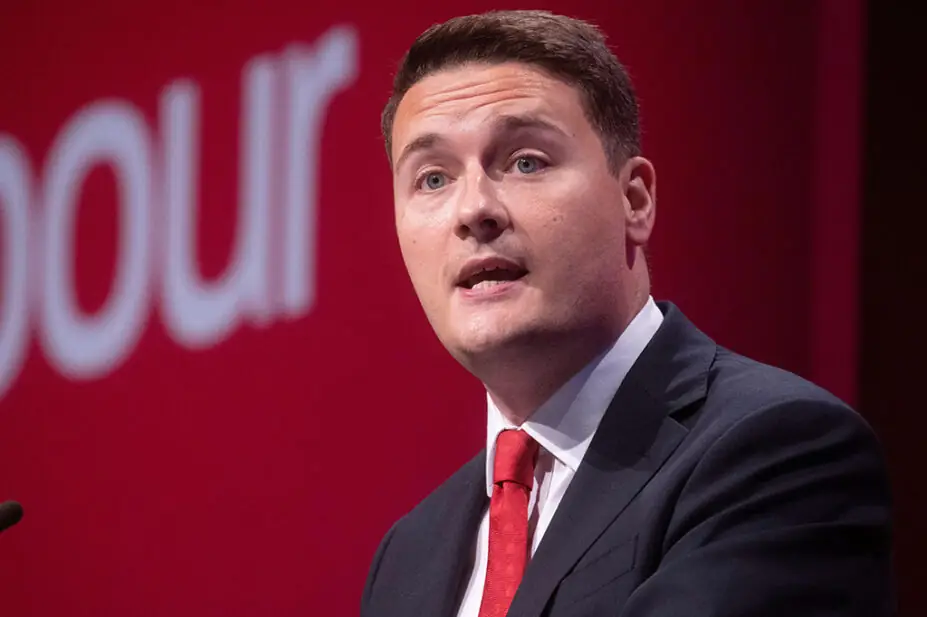
Mark Thomas / Alamy Stock Photo
The Labour Party wants the UK to be a “stronger destination” for pharmaceutical manufacturers, according to Wes Streeting, the shadow health secretary.
Speaking at an event held by the Medical Journalists’ Association on 17 June 2024, Streeting shared his plans for the NHS should the Labour Party win the upcoming general election in July 2024, commenting that there had been a “chorus of unanimous opinion” across the life sciences, pharmaceutical and medtech industries that the NHS had not been a “good partner”.
While there were examples of good practice and innovation within some trusts, Streeting said the NHS was not realising “anywhere near the full potential” of partnering with the life sciences industry on clinical trials and adopting and rolling out new treatments.
“[Pharmaceutical and medtech companies] will talk about an individual trust that they like to work with, and chief executives who get it, but we do not realise anywhere near to full potential the benefit of having a single-payer system that ought to make it really easy to partner with life sciences in terms of clinical trials, testing new treatments, new technology — with a diverse cohort of patients,” he said.
After proving the concept, he added that the NHS then needs to get better at “adopting and rolling it out on a scale that means that [manufacturers] get a good volume of sales, we get a good value on price; [making] the UK a global destination for groundbreaking science and potentially a stronger destination in terms of manufacturing”.
Streeting was responding to a question about the new five-year voluntary pricing agreement (VPAG) for branded medicines, which was agreed in November 2023 and will allow the level of annual growth in sales of branded medicines to the NHS to double from 2% in 2024 to 4% by 2027. However, questions have been raised over whether it is enough to tackle drug shortages.
The VPAG also sets out how NHS England plans to work with companies to create a new patient support programme database, to encourage local NHS services to partner with manufacturers and the wider use of novel approaches to patient support post treatment.
Streeting said: “Whether it’s life sciences and pharma, or medtech, there’s been a consistent, deafening chorus of unanimous opinion from your smallest medtech startup entrepreneur through to some of the biggest names in pharma that the NHS is not a good partner,” he said.
He added that the ways services are delivered are best left to communities and public services that understand the needs of their population, to allow flexibility and innovation, and a culture where people can “dare to do things differently”.
“But especially on things like procurement, there is a very obvious cost benefit in terms of doing things more centrally,” he said.
In its manifesto, the Labour Party said there had been a revolution in data and life sciences that had the potential to transform healthcare, and that the COVID-19 pandemic had shown how a “strong mission-driven industrial strategy involving partnerships with government, industry and academia could turn the tide.
The manifesto includes a commitment to an NHS innovation and adoption strategy in England, which will include a plan for procurement.
The Conservative Party’s manifesto pointed to the “fastest development and deployment of the Covid vaccine” as an example of how they had turned the UK into a science and innovation “superpower”. The manifesto also commits to increased public spending on research and development, as well as maintaining tax reliefs.
In their manifesto, the Liberal Democrats said they would “improve faster access to new and novel medicines and medical devices by seeking a comprehensive mutual recognition agreement with the European Medicines Agency”.
The British Generics Manufacturing Association has warned the UK risks “becoming a backwater supply market” for medicines unless a more supportive policy environment is introduced by the next government.
“Despite the success of the off-patent market, there is no dedicated policy framework to support the sector that supplies four out of five medicines,” they said in their own manifesto.
“We urge whoever forms the next government to create a dedicated and targeted set of policies to support this critical sector’s survival and economic growth.”
Claire Machin, executive director of international policy and UK competitiveness at the Association of the British Pharmaceutical Industry, said: “The UK is already a global leader in life science research, but there is so much more we could deliver for this country by improving our international competitiveness in medicines adoption, development and manufacturing.
“With the government and the NHS as our partners, we can unlock economic growth and ensure fair and timely access to treatments and vaccines in the NHS. We have great potential in the UK to both grow our already successful life sciences sector, while supporting the NHS in delivering care and preventing illness.”


